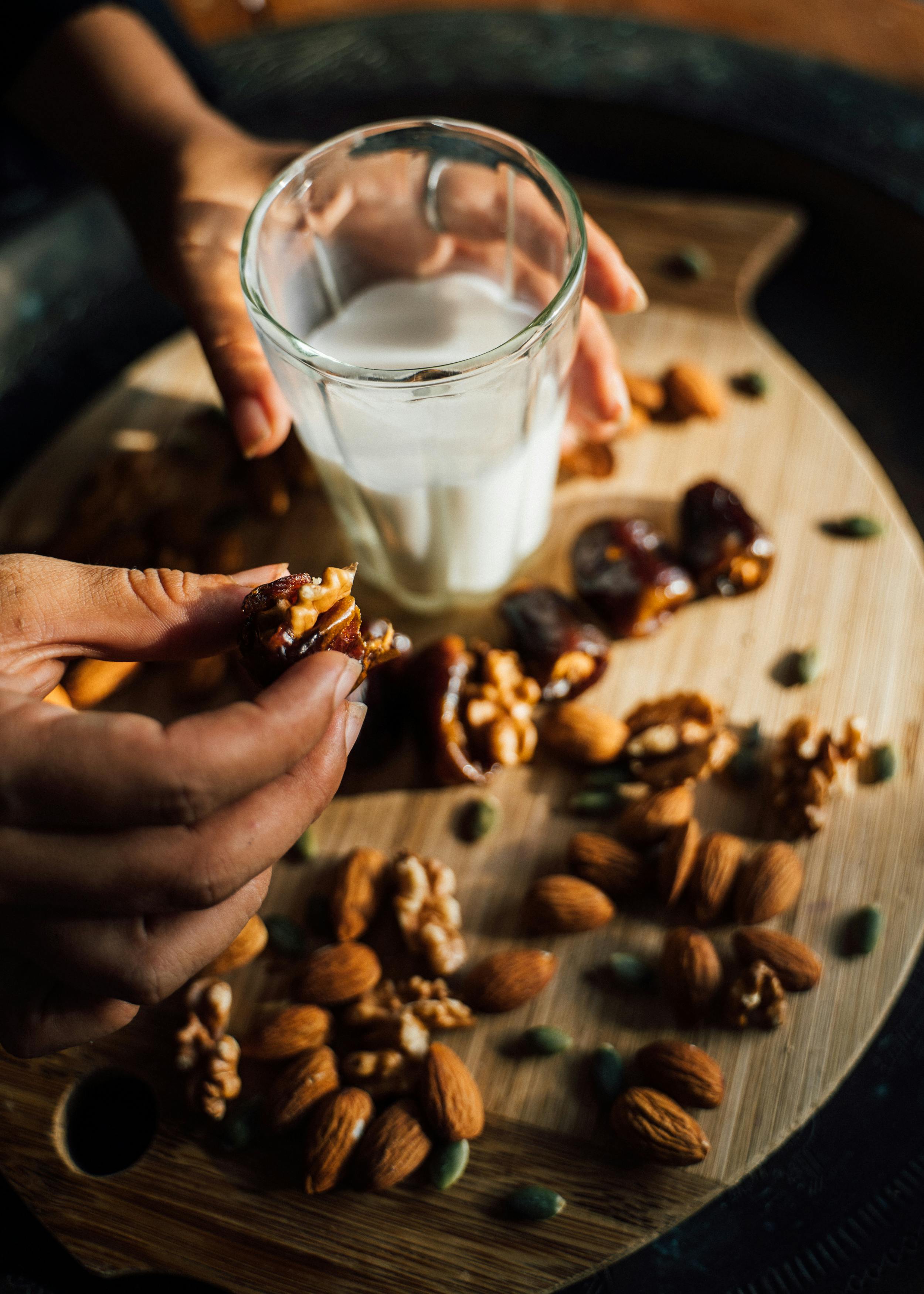Apply Now
Understanding Keto Insomnia: Causes and Effects
Keto insomnia has become an increasingly recognized issue among individuals following a ketogenic diet. As many embark on this low-carb, high-fat lifestyle, sleep-related disturbances often coincide with changes in their dietary habits. Understanding the relationship between the ketogenic diet and sleep quality is essential for anyone looking to achieve their weight loss and health goals without the burden of sleep problems.
Sleep issues on keto can stem from various factors, including altered hormonal balances, changes in macronutrient intake, and how the body adapts to the metabolic state of ketosis. For those experiencing both insomnia and low carbs, it's crucial to address these issues early on to maintain overall well-being. Recognizing the barriers to sleep on keto not only assists in improving sleep quality but ultimately enhances cognitive function and energy levels throughout the day.
In this article, we'll delve deeply into keto-related insomnia, explore its causes, and examine effective solutions to manage sleep disturbances. You will learn about practical strategies, lifestyle adjustments, and dietary modifications that promote restorative sleep while on a ketogenic diet.
The Connection Between the Ketogenic Diet and Sleep
The link between the ketogenic diet and sleep disturbances primarily revolves around the body’s metabolic shift. As the body transitions from using glucose to fats for energy, it often experiences a range of sleep-related issues, ranging from difficulty falling asleep to maintaining restful sleep. This can disrupt hormonal balance, particularly affecting cortisol and melatonin levels.
Moreover, the initial phase of a ketogenic diet may lead to dehydration and electrolyte imbalances, which can exacerbate insomnia symptoms. A better understanding of these connections can provide insight into why some individuals struggle with sleep quality when adopting a keto lifestyle.
Common Symptoms of Keto-Related Insomnia
Those experiencing insomnia linked to keto may manifest symptoms such as difficulty falling asleep, frequent awakenings, night sweats, and unusually vivid dreams. Additionally, these individuals might face daytime fatigue, mood swings, and decreased energy levels, all of which can impact their well-being. Identifying these symptoms early allows individuals to address potential dietary issues affecting their sleep.
Why Low Carbs Impact Sleep Quality
Low-carb diets can influence sleep through various mechanisms. For one, the lack of carbohydrates may disrupt serotonin production, the precursor to melatonin, which plays a critical role in regulating sleep cycles. Furthermore, lower carb intake can lead to fluctuations in blood sugar levels at night, provoking night-time awakenings.
Another consideration is the timing of meals; when consuming meals high in protein or fats too close to bedtime, digestion can impede the ability to relax and achieve quality sleep. Understanding how these dietary factors impact sleep can empower those on a ketogenic diet to make adjustments to their eating patterns.
Effective Strategies for Managing Keto Insomnia
With the complexities of keto insomnia recognized, it’s essential to explore effective management strategies that address the underlying sleep disturbances. Implementing practical solutions not only facilitates improved sleep quality but also promotes adherence to the ketogenic lifestyle.
Implementing a Proper Sleep Schedule
Establishing a consistent sleep schedule is one of the most effective methods for combating sleep disruption on a ketogenic diet. Going to bed and waking up at the same time each day helps regulate the body's internal clock. This regularity bolsters the body's natural circadian rhythm, promoting feelings of tiredness at night and alertness during the day.
Additionally, avoiding stimulants such as caffeine, especially in the afternoon and evening, can further enhance sleep quality. Transitioning to a more structured sleep schedule empowers individuals to reclaim control over their sleep patterns.
Exploring Dietary Adjustments for Sleep Quality
Careful consideration of food choices can significantly influence sleep on keto. For instance, incorporating magnesium-rich foods such as leafy greens, nuts, and seeds can promote muscle relaxation and aid sleep. Similarly, certain amino acids have been linked to improved sleep quality; including amino acid-rich foods like turkey or dairy in evening meals may be beneficial.
Furthermore, mindful carb cycling may offer an effective balance. On certain days, slightly increasing carb intake can boost serotonin and melatonin production, subsequently enhancing sleep quality.
Utilizing Relaxation Techniques Before Bedtime
Implementing relaxation techniques can provide significant support for those coping with sleep loss on keto. Mindfulness practices, like deep breathing exercises and yoga, promote a sense of calm, reducing anxiety and stress, which are common culprits for sleep troubles.
In addition, creating a bedtime routine that includes calming activities, such as reading or gentle stretching, can help lower cortisol levels and prepare the body for restful sleep.
Incorporating Sleep Hygiene Practices into a Keto Lifestyle
Improving sleep hygiene is another crucial aspect of managing keto insomnia effectively. A few adjustments in daily routines may pave the way for more restful nights.
Crafting the Ideal Sleep Environment
Creating a sleep-conducive environment can significantly enhance sleep quality. Consider optimizing the bedroom by minimizing light and sound, ensuring a comfortable temperature, and using soothing colors in decor. These elements collectively contribute to a space that encourages relaxation.
Investing in high-quality bedding and considering the sleep position can also affect sleep quality. Experimenting with pillows and mattress types to ensure adequate support may curtail discomfort during the night.
Tracking Sleep Patterns on Keto
Utilizing sleep tracking methods can empower individuals to identify patterns and correlations between their diet and sleep. Whether through wearable technology or apps, gaining insight into sleep quality and duration helps pinpoint strategies that work for improving sleep.
By recording factors such as meal timing, nighttime awakenings, and snoring occurrences, individuals can make informed decisions aimed at night-time recovery.
Considering Sleep Aids and Supplements
For those still struggling despite implementing various lifestyle changes, it may be appropriate to explore sleep aids such as melatonin. Melatonin supplementation can support the transition to sleep, but it’s crucial to consult a healthcare provider before starting any new supplementation.
Herbal remedies, such as valerian root or chamomile tea, can also promote relaxation without introducing additional carbs or sugars, aligning seamlessly with a ketogenic approach.
Long-Term Management of Keto Insomnia
Managing keto insomnia isn't a one-time effort; it requires ongoing adjustments and long-term strategies for maintaining quality sleep.
Adjusting Lifestyle Changes for Sustained Results
Incorporating physical exercise into a daily routine, particularly aerobic activities, has shown a strong correlation with improved sleep patterns. Regular movement aids in regulating sleep cycles and enhancing overall health, making it an indispensable component of any long-term management strategy.
Additionally, utilizing stress management approaches, such as meditation or supportive social interactions, can mitigate stress levels that would otherwise disrupt sleep quality.
Making Informed Choices About Nutrition
Food plays a crucial role in managing keto insomnia. Opting for lighter dinner options and avoiding rich or heavy meals close to bedtime can improve sleep quality. Furthermore, ensuring adequate hydration throughout the day, while being cautious not to overhydrate before bed, is essential for preventing nighttime awakenings.

Incorporating Evening Routines for Better Sleep
Building a consistent evening routine helps signal to the body that it's time to wind down. Activities that promote relaxation, such as reading or light stretching, along with dimming the lights, prepare the mind and body for rest.
Establishing rituals can engage the body’s natural circadian rhythms, encouraging a smoother transition into sleepfulness.
Conclusion: Embracing a Restful Future on Keto
In conclusion, managing keto insomnia involves recognizing the multifaceted relationship between the ketogenic diet and sleep. By understanding the causes and symptoms of sleep disturbances linked to keto, individuals can implement effective strategies to promote restorative sleep.
Incorporating dietary adjustments, relaxation techniques, sleep hygiene practices, and considering supplements when necessary can create a tailored approach for improving sleep quality. Always remember that successful management is a journey and requires ongoing efforts and adjustments to foster an effective keto lifestyle alongside restorative sleep.
For additional insights into sleep and nutrition, consider browsing resources on how dietary choices affect overall health to ensure a well-rounded approach to wellness.



